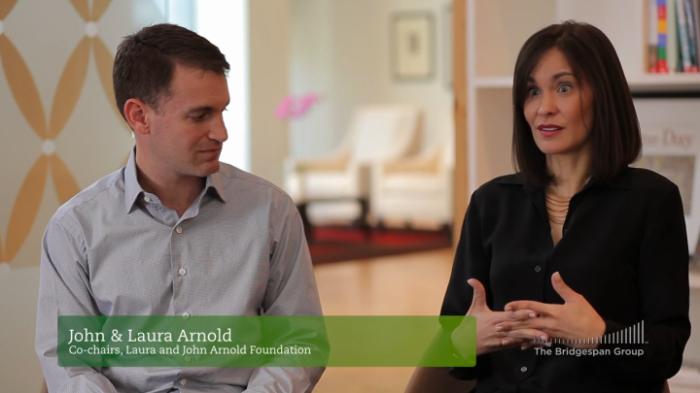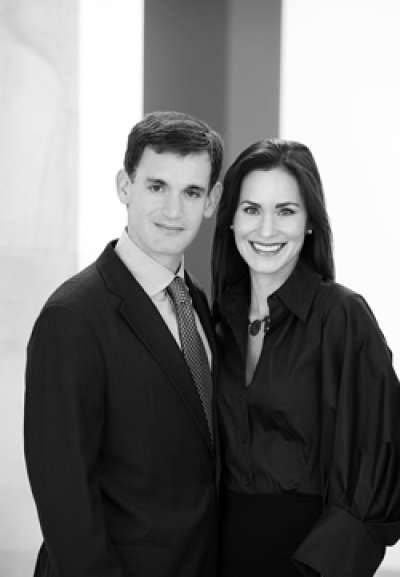Why One Young Houston Couple Won't Leave $4 Billion Fortune for Their Three Children

A young billionaire couple from Houston, Texas, has decided to give away their estimated $4 billion dollar fortune instead of leaving it for their children, and you might be surprised to know why.
Wunderkind John Arnold is not yet 40 years old, but last October he closed his hedge fund, Centaurus Energy, and retired after amassing an estimated wealth of $4 billion in the last 10 years.
Now, Arnold who began his career at Enron, and his wife Laura have dedicated the rest of their lives to giving away that wealth to support innovative ideas that can solve society's myriad problems because they don't plan on leaving it for their three children.
"Because of our backgrounds and because of our own experiences, we just don't believe in dynastic wealth," said Laura Arnold in an interview posted on givesmart.org.

"We don't believe that our children should inherit vast amounts of money. We think that many people have been quite successful at creating dynasties that have been effective and where people are productive and terrific members of society but we just don't want to run that risk. We want to give our children the opportunity and the ambition to create wealth themselves," she said.
"We don't want them to feel entitled. We don't want them to feel life has been solved for them. We always talk amongst ourselves that wealth should allow the kids to be able to do anything they want but not to do nothing and it was very hard as a parent to figure out how to do this," she highlighted.
Laura explained that one way parents can avoid raising children who feel entitled is to instill ambition in them.
"To borrow the words of, I think it was Mike Bloomberg in his giving pledge letter, to show them that they can benefit greatly from what you do in your lifetime and your philanthropy much more than you can from whatever you leave them in your will," she said.
John, who currently heads the Laura and John Arnold Foundation with his wife, argues that it is a mistake to think that significant amounts of money will make children happier.
"I've never seen evidence that giving your kids a lot of money either makes them happier or makes them more productive members of society. In fact we've seen a lot of anecdotal evidence to the contrary. And if that's so, then what's to be gained by giving your kids a large sum of money?" he asked.
"If you're concerned about trying to make society a better place, then marginal utility of wealth would dictate that you should do things that try to spread around some of the benefits of that money rather than giving it all to one person and so we've always had that as a philosophy with our kids," he added.
Laura also explained that teaching children to respect money was also important. "The idea that it's a tool to achieve great things but it's also a resource that is hard to obtain and that should be respected," she said.
And to illustrate this point she explained how John's mother taught him that concept very early and continued following the principle in his adulthood.
"When we first got married, his mother who is lovely and lives in town and works at John's office, every Sunday would look at the paper, I think she might still do this, I don't know, she'd look at the paper and find out where sodas were on sale. And so she would drive her little minivan to the CVS or to the Walgreens or whatever and she would buy sodas for the office because she was the office accountant," she said.
"… And then she would make John carry the sodas into the office every Monday morning. And this was all to save the ten cents a can for getting the soda service to deliver to the office … she didn't want him to lose sight of the value of money. It was her way of reminding him that money is money it doesn't matter how much of it you have and you should never take that for granted," she added.
When asked why they decided to start giving away their fortune this early, John replied: "We really enjoy the challenge of giving away money effectively. We find that invigorating and we also get pleasure out of seeing the benefit that our money can do for society and so, selfishly, we want to have those emotions today, not wait 'til we're 60."





























